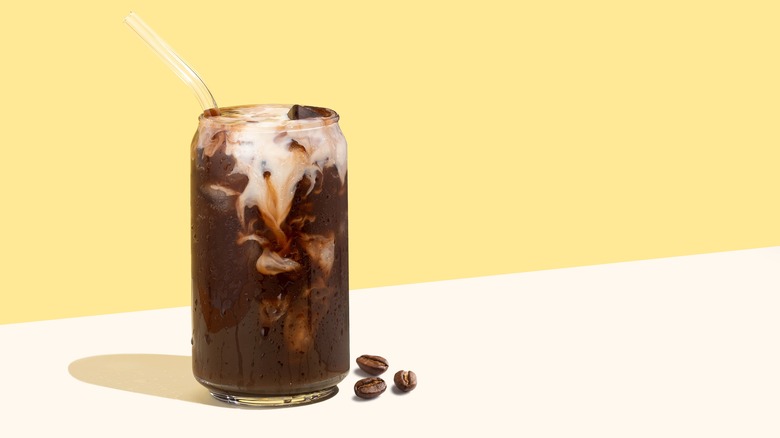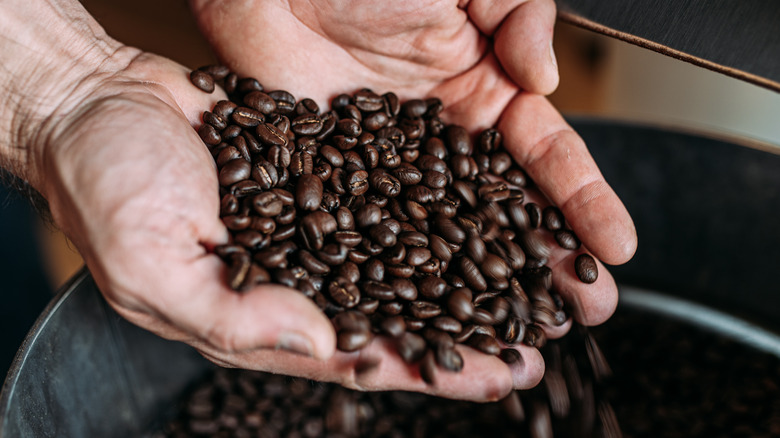The Reason Canned Hard Coffee Often Doesn't Live Up To Expectations
On a busy weekday morning (as in, so busy that there isn't even enough time to hit the drive-thru), there's probably a good chance you're grabbing a canned coffee. The market is packed with options ranging from nitro cold brews to lattes and black coffees. As you hurriedly peruse your local gas station's refrigerator, you might even spy a canned hard coffee — coffee spiked with alcohol.
When Pabst Blue Ribbon released its 5% Alcohol By Volume (ABV) canned hard coffee in 2019, the company said it was "designed to meet the needs of the next generation of American consumers." PBR also anticipated consumer hesitation: The product was initially only released in limited test markets. At the time, The Takeout compared the flavor to a Yoo-hoo or a melted Starbucks Frappuccino, but said it ultimately was "not the worst."
Initially, folks were ravenous for it. According to Nielsen Data via Fresh Cup, the hard coffee industry hit $18.9 million in sales for 2019-2020, demonstrating 11,000% year-over-year growth. Even Dunkin released a coffee beer with Harpoon Brewery in October 2018, notes the New York Post. But then, in October of 2022, PBR announced that it was discontinuing its canned hard coffee after consistently tanking sales, according to Beverage Digest.
Is it worth it to give canned hard coffee a second (or third, or fourth) try? Or, are you better off adding a shot of Baileys or Irish whiskey to your cup of joe?
Bean quality may be to blame
According to The Washington Post, the reason most canned hard coffees haven't resonated with consumers the way other boozy coffee drinks, like espresso martinis, have is simply that they just don't taste very good. Independent coffee industry consultant Randy Anderson says cutting corners on bean quality is to blame. "The coffee beans [for canned hard coffee] do not start out as a specialty-grade coffee, which is what the cold-brew market was built on," Anderson told the Post. If that canned hard coffee doesn't taste as good as your go-to canned latte, it might be because it really isn't as good. Plus, explains Jim Watson, executive director of beverages research at Rabobank, on average, the price tag for boozy java is 450% higher than the price of canned hard teas like Mike's Hard Lemonade and Twisted Tea.
Food and drink writer Dave Infante theorizes that foodies want to like canned hard coffees, but when it comes down to it, they don't. "American drinkers are in a phase right now where they're willing to drink anything once, and I think hard coffee was a seductive proposition," Infante says, via Fresh Cup. "'Love coffee? Love alcohol? Of course you do. Here, try this!'" Consumers did try it, and it turns out most weren't fans.

